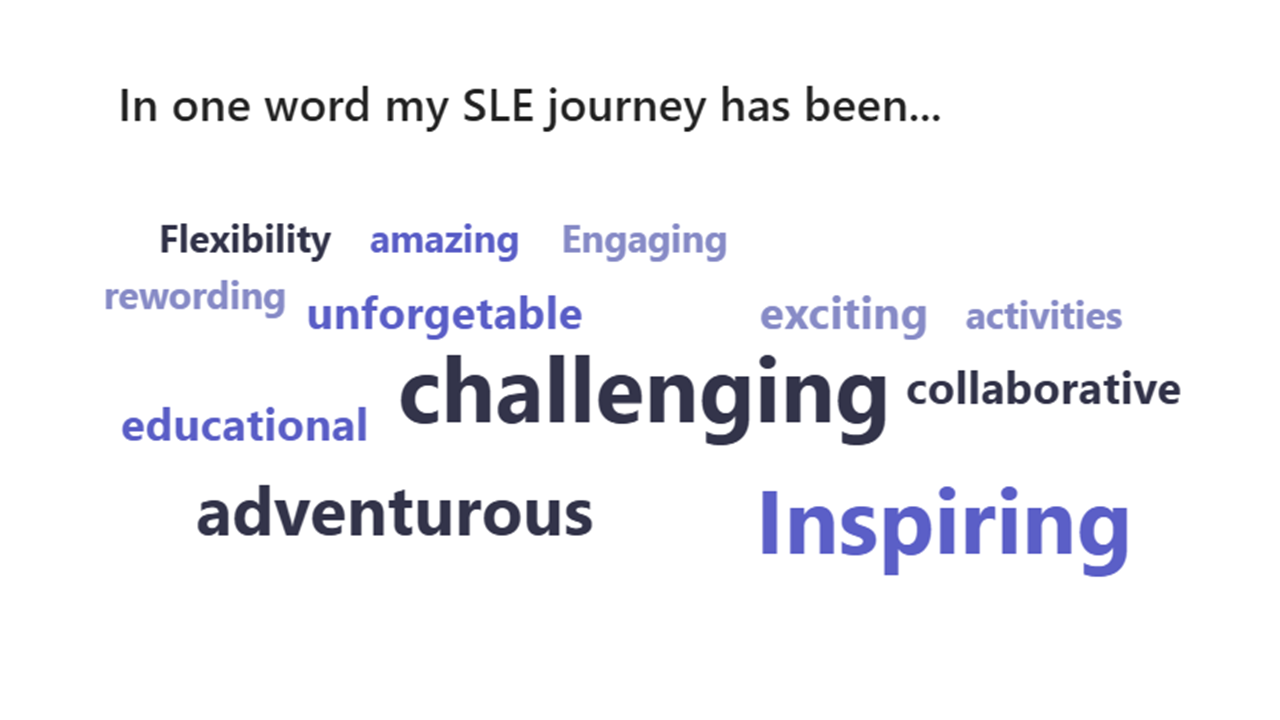
Reflecting on the Journey: 2nd SLEs Reflection Workshop – Mature Phase
On 17 June 2025, the 2nd Reflection Workshop of the STE(A)M Learning Ecologies (SLEs) project, organized by EUN, APRE and EA, convened around 30 participants from various pilot countries for an interactive online session. As the mature phase of the initiative nears its conclusion, the workshop provided a collaborative space to reflect on successes, identify challenges, and shape future directions for Open Schooling in Europe.
The workshop featured a dynamic exchange of experiences, guided by targeted questions and an open Padlet board where participants shared their insights across five thematic areas: policy frameworks, systemic recommendations, partnerships, challenges, and sustainability.
Key Insights from the Workshop
Policy Frameworks:
Several pilots successfully embedded their activities within national and local educational frameworks. In Italy, the use of PCTO programs enabled integration into formal curricula, while countries like Greece and Cyprus capitalized on skill labs, extracurricular zones, and networks such as UNESCO-affiliated schools to support sustainability. Flexibility in curricula—though unevenly available—was a recurring enabler across pilots in Norway, Spain, and Serbia.
Systemic Recommendations:
Participants widely agreed on the need for stronger institutional and policy support. Key suggestions included:
- National curriculum reforms to allow interdisciplinary learning;
- Multi-level governance and systemic alignment;
- Formal recognition of teachers’ involvement;
- Financial and infrastructural support;
- Enhanced teacher training focused on STE(A)M and Open Schooling
Many highlighted the importance of embedding STE(A)M initiatives into mandatory education pathways, rather than treating them as add-ons.
Partnerships:
Robust local collaborations were foundational to the success of many pilots. Schools partnered with research institutes, local governments, NGOs, and cultural institutions. Examples included the Italian collaboration with ISPRA and national parks, the Spanish partnership with the DOMUS science museum, and Cyprus’ engagement with multiple public agencies. These partnerships enriched the learning experience and provided access to resources and expertise.
Challenges:
Despite the successes and benefits generated, pilots encountered common obstacles:
- Bureaucracy and administrative load emerged as one of the most widespread issues. In Italy, formal agreements, safety procedures, and bureaucratic delays were cited as major impediments, echoed by similar experiences in Cyprus.
- Limited funding for logistics and materials; Pilots like Italy Blue Mission noted the inability to carry out planned activities such as outdoor sessions or material purchases due to financial constraints.
- Timetabling and curricular rigidity affected countries like Greece and Norway, where scheduling SLE activities within traditional lesson hours proved difficult—particularly when using innovative methods like design thinking.
- Overburdened teachers, with little time or recognition for extra initiatives.
- Political and contextual factors as reported by Serbia, also disrupted planning and execution, demonstrating the vulnerability of such initiatives to broader systemic pressures.
- Teacher confidence and recognition were also noted, especially in Greece, where educators cited difficulties with impact assessment and needed more support for open methodologies.
Sustainability & Methodology Improvements:
While some pilots expressed readiness to continue independently, many called for:
- Ongoing financial support and institutional incentives;
- More time allocated for teacher collaboration and preparation;
- Platforms for peer exchange and best practice sharing;
- Tools for assessing and communicating social and environmental impact;
- Clearer guidance and support for student co-design within projects.
These reflections will directly inform the final SLEs policy brief for the European Commission, providing grounded, evidence-based recommendations to support systemic change in Open Schooling. The workshop not only highlighted what has been successfully achieved, but also reinforced the collective commitment to make STE(A)M learning more inclusive, practical, and embedded in real-world contexts.

